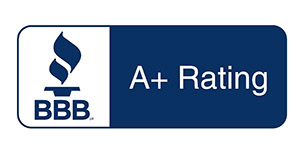Proper IT management policies and strategies help reduce overall costs to a business. These policies can help safe guard intellectual property and provide staff with a system that facilitates their productivity potential. In part one we looked at buying in quantity to help standardize the IT purchasing lifecycle. This time we are going to review best practices for managing and maintaining company assets in the most efficient manner. We will discuss central management and inventory records.
Central Management
A centrally managed business IT network is paramount to the sustained success of an organization. The person, or company, in charge of this day-to-day management must be trustworthy, readily available, and, ideally, independent of the network’s users. This separation is necessary to avoid any conflicts of interest and safe guard sensitive information. I am not saying that they need to be an emotionless zombie, but they should have the company’s best interests in mind. After all, everyone’s job depends on it. If data is not stored in a secure and redundant environment there is a very high possibility that some, or all, of the organization’s intellectual property could be lost. It is not always the case that the activity is malicious, but when data loss occurs all that really matters is getting the data back as soon as possible. Working with an IT support provider who understands best practices, and has experience managing business networks, will drastically increase efficiency and reduce the likelihood of issues down the road. Proactive security and backup policies will help provide this level of security, but it must be implemented before the issue occurs. Central IT management will also help in the procurement process because users will require approval to connect their device to the business network and access company files.
Inventory Records
Keeping an inventory of hardware and software is going to save a lot of confusion down the road. Keeping a current inventory will allow the IT manager to maximize software license utilization, reduce the time it takes to obtain warranty support and manage data security on lost or stolen hardware. The knowledge base should be able to quickly cross-reference all software, hardware, and mobile phones deployed to each user. Additional benefits of inventory records include budgeting for upgrades and reallocating hardware to a new user instead of unnecessarily purchasing surplus hardware.
These two points may seem trivial, but we often find businesses struggling without central management or proper inventory records and controls. The IT services and support team at Sea to Sky is meticulous in their work, which helps reduce troubleshooting time. At the end of the day we are supporting the client’s hardware; therefore, we feel it is necessary to provide a reasonable level of transparency and communication of what we do. This provides our clients with a level of security they can appreciate and allows they to focus on their own growth.
If you have questions about Sea to Sky Network Solutions, or our service offerings, please contact one of our team members for more details. We look forward to helping your business succeed!
– Sea to Sky Team



